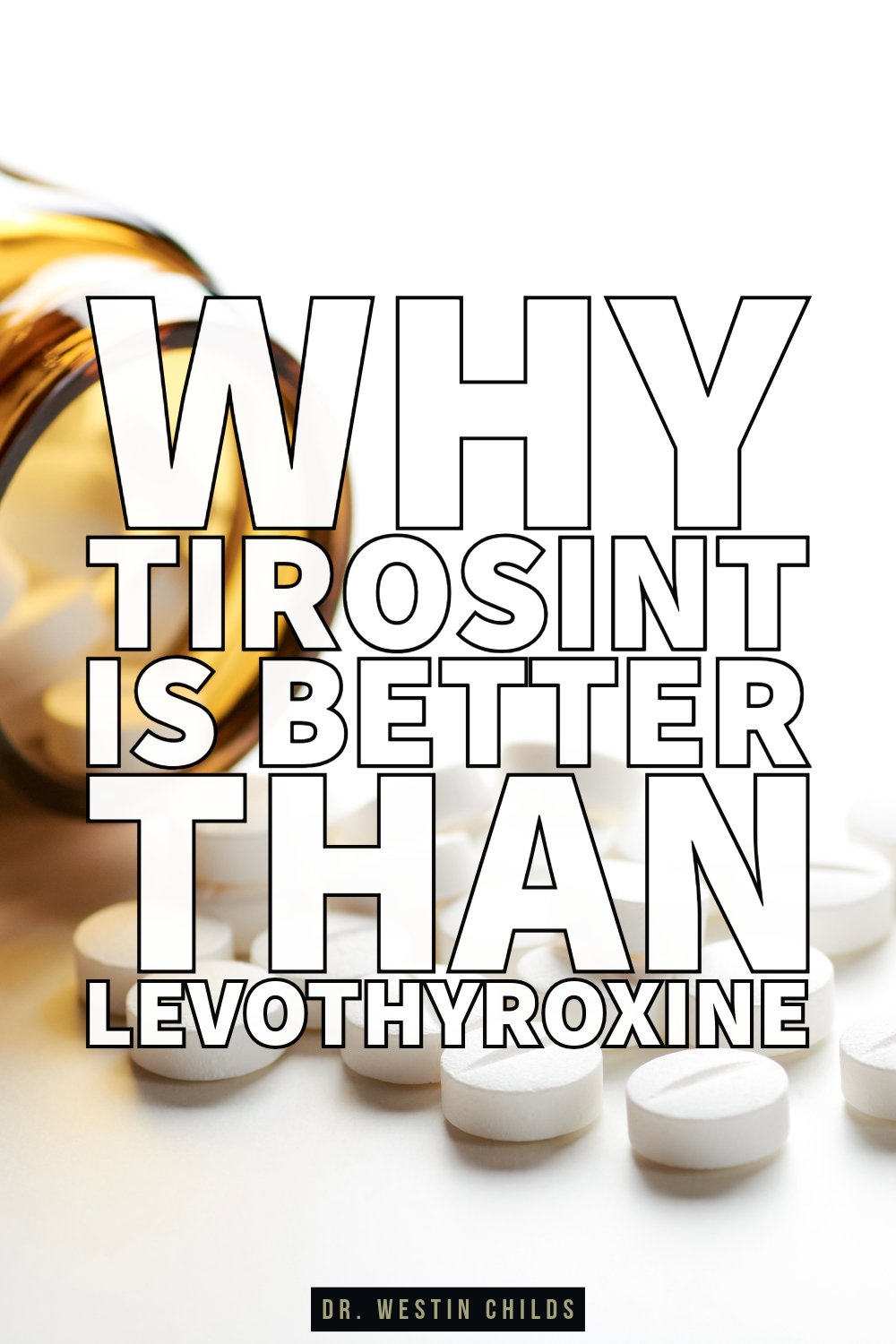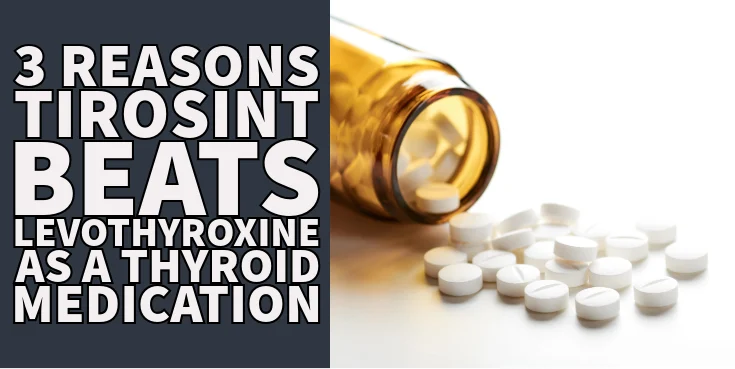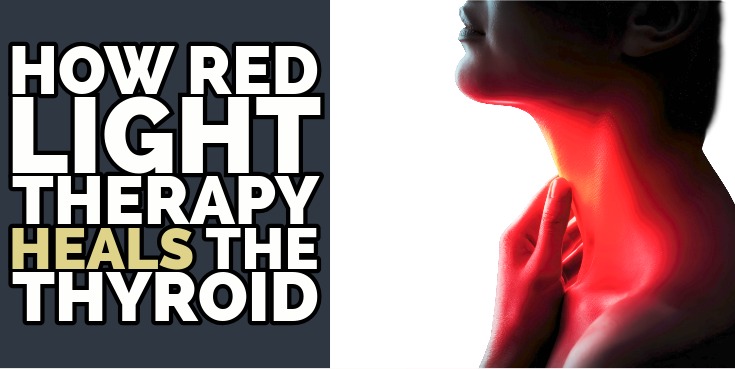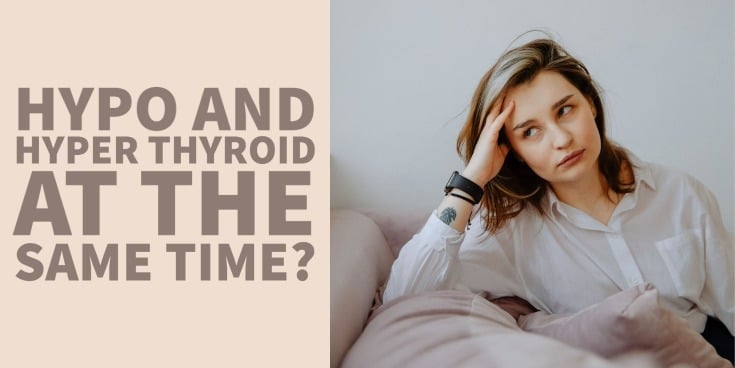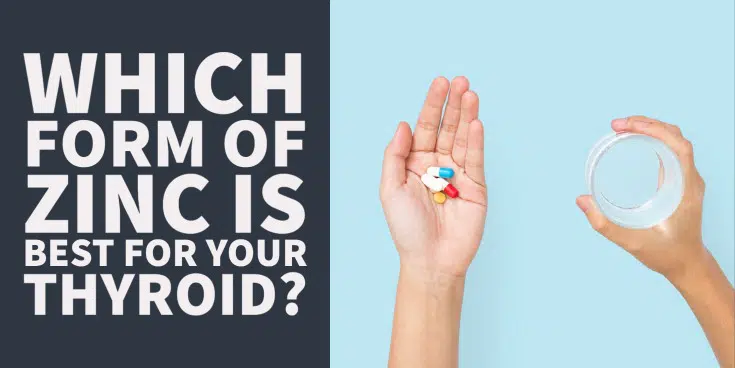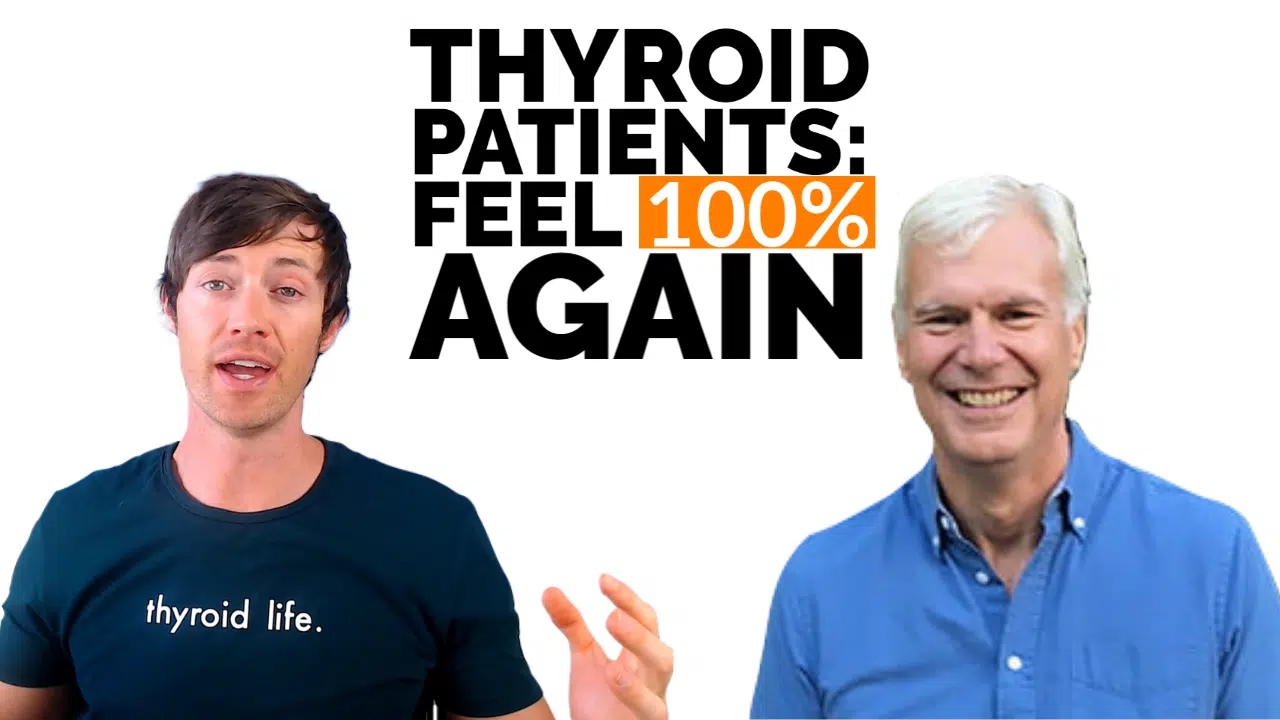I’m always surprised to find out that thyroid patients aren’t aware of the many thyroid medications available to them besides levothyroxine.
Doctors, for reasons we’ve discussed elsewhere on this blog, are persistent in their drive and desire to prescribe levothyroxine for pretty much every thyroid patient.
Unfortunately, as many of you have found out, levothyroxine just simply doesn’t work well for every single thyroid patient.
Sure, it works well for some but for others, it may actually make them feel worse.
But what is a thyroid patient supposed to do in this situation?
Give up and just slog through every day taking a medication that isn’t working for them?
No way!
This is where Tirosint comes in.
Tirosint is a relatively newer thyroid medication that came out in 2006 (new compared to other thyroid medications which have been out for decades).
Tirosint has some special properties that make it particularly attractive to people who are using levothyroxine and not feeling better.
One of those is the fact that it is comprised of 100% T4 thyroid medication.
This means that Tirosint is VERY similar to levothyroxine (except where it counts, which we will discuss below).
That may not sound good to you at first until you realize that because it is so similar to levothyroxine your doctor is much more likely to give it to you over other forms of thyroid medications like NDT or Cytomel.
I’m not saying Tirosint is the best thyroid medication out there by any stretch of the imagination.
But it is certainly better than levothyroxine for MOST thyroid patients.
Here’s why:
#1. It’s Cleaner.
Tirosint is one of the cleanest thyroid medications on the market.
And by clean what I really mean is that it has far fewer inactive ingredients compared to other forms of thyroid medications.
Take levothyroxine, for instance.
Levothyroxine contains the following inactive ingredients:
- Magnesium stearate
- Microcrystalline cellulose
- Colloidal silicon dioxide
- Sodium starch glycolate
- Lactose monohydrate (in the case of Synthroid (1))
- Acacia (in the case of Synthroid)
- Food colorings/dyes (2) including Yellow no. 6, Blue No. 2, Yellow No. 10, Red No. 27, Red No. 30, Blue No. 1, and many others (the colorings and dyes vary based on the tablet strength)
Compare this to Tirosint which contains (3):
- Gelatin
- Water
- Glycerin
The inactive ingredients found in levothyroxine and Synthroid are known as excipients.
These excipients (or inactive fillers) do not actually contain active medication but instead serve a different purpose.
They help to stabilize the medication (in our case, levothyroxine/thyroxine) while also doing other things such as delaying when the medication gets absorbed and so on.
Other excipients serve no purpose other than changing the color of the pill with dyes.
These dyes have some potential in helping to reduce confusion among patients but it’s not without cost.
Excipients are thought to be “inert” meaning they weren’t supposed to cause any issues or interfere with your ability to use a medication.
We now understand that this assumption isn’t true. In fact, we now have significant evidence to show that these excipients can cause issues for many patients (4).
This is particularly true of thyroid patients who tend to respond negatively to the excipients in many types of medications including levothyroxine and Synthroid.
Let’s take lactose monohydrate as an example.
Lactose monohydrate is found in some versions of levothyroxine/Synthroid.
Lactose monohydrate contains lactose which is a milk sugar found in dairy products.
Many people around the world are what we call lactose intolerant, meaning they can’t tolerate lactose.
Compared to the normal population, thyroid patients tend to have more issues in tolerating both dairy proteins and dairy sugars.
You can imagine the problem this can cause for a thyroid patient who has problems tolerating lactose and yet is taking a medication that contains that very substance.
It can block the absorption of levothyroxine and can even cause resistance to your levothyroxine as evidenced in this case study (5).
It doesn’t stop there, though.
We know from other studies that removing lactose from your diet can improve thyroid function in patients with Hashimoto’s thyroiditis (6).
Why this ingredient is found in some versions of levothyroxine, the most commonly prescribed medication to treat low thyroid, remains a mystery to me.

What you need to know is that your levothyroxine may not be working BECAUSE of these inactive fillers.
And, by the way, we’ve only talked about one inactive ingredient so far.
Another common ingredient that can cause issues is acacia.
Acacia refers to a family of shrubs and trees and this is another substance that people have trouble with (7).
If you are someone who already suffers from seasonal allergies to pollen or grass then there’s a chance you might also have issues with acacia.
An allergy to the acacia in Synthroid may result in allergy-like symptoms when you take it.
We don’t have a lot of data on how many people actually have an issue with acacia but I suspect it’s quite high given my own experience.
In addition, it’s still possible for you to react to the other inactive ingredients, dyes, or starches found in your version of levothyroxine.
So when we talk about how clean a thyroid medication is, it actually matters.
How do you know if you are reacting to these inactive fillers? You can take a look at your symptoms.
Reactions to inactive ingredients are quite broad and can vary from person to person.
Some people may not even react at all to these fillers while other people may have significant reactions.
As you can imagine, the symptoms you might experience can vary from individual to individual as well.
Reactions to excipients may cause any or some of the following symptoms:
- Gas/bloating
- Stomach pain
- Allergy-like symptoms
- Runny nose
- Abdominal pain
- Headaches
- Cramps
- Diarrhea
- Constipation
- Swelling
- Rash
- Hives
- Itching
Many of these symptoms are nonspecific and can be difficult to really track down.
Because of this, you need to pay attention to WHEN your symptoms started and if they correlate with when you started taking your thyroid medication.
Keeping a symptom journal or symptom log can really help in these situations.
By keeping track of your symptoms, the time of day that they show up, how long they last, and so on, you will be able to recognize patterns and lock down the cause.
Switching to a cleaner thyroid medication, such as Tirosint, can also help.
I know from experience that many thyroid patients notice considerable improvement almost immediately after switching, especially if they are experiencing reactions to the inactive fillers/dyes.
Due to this, and because thyroid patients tend to be more sensitive to inactive fillers and dyes at baseline, I often recommend Tirosint as first-line therapy to thyroid patients over levothyroxine.
Switching thyroid medications doesn’t guarantee that your symptoms will be fixed, but it’s a great place to start.
#2. It is Better Absorbed.
Another huge benefit to taking Tirosint, which is an extension of number 1 above, is that it’s often much better absorbed compared to levothyroxine.
Many thyroid patients are taking the right dose of levothyroxine but they aren’t feeling better because that dose of levothyroxine is not getting into their body.
Absorption is so important when it comes to taking levothyroxine because it’s a rather sensitive medication.
This is exactly why your doctor/pharmacist recommends that you take levothyroxine on an empty stomach, away from other medications, away from food/water/coffee, and away from supplements.
Each of these has the potential to interfere with your dose of levothyroxine and may actually prevent it from being absorbed into your intestinal tract.
It may sound gross, but much of your levothyroxine may be exiting your body in your stool as opposed to entering your body to help you feel better.
The dyes/fillers/inactive ingredients above may play a role here but other factors such as the integrity of your gut are also important.
Any sort of inflammation or problem in the gut can potentially cause issues with levothyroxine absorption.
This includes issues like irritable bowel syndrome, inflammatory bowel disease, acid reflux, the use of acid blockers, and chronic constipation are all indicators of gut issues and people with these conditions will have a harder time absorbing levothyroxine.
How do you get around this?
One option is to use Tirosint.
Because Tirosint has so few inactive ingredients it’s much easier for your gut to break it down and then absorb it.
We know from studies (8) that Tirosint can be absorbed even when taking it with food and/or coffee!
This is certainly NOT true of levothyroxine.
If you try taking levothyroxine with food or coffee I can almost guarantee that you will have issues absorbing it.
In addition, because Tirosint is in a gel cap, it’s also a little bit easier to take via the sublingual route.
It’s possible to break the gel cap and put the liquid contents of levothyroxine directly into your mouth and allow for more rapid absorption under your tongue.
This method can work for other types of thyroid medications but obviously works best in thyroid medications with fewer inactive ingredients.
If you want to read more about taking your thyroid medication under your tongue then check out this post.
Put simply:
The more thyroid medication you absorb the better you will feel.
So anything you can do (or take, in this instance) to increase absorption of your thyroid medication is a good thing.
#3. Taking it is Easier.
I like to think that every thyroid patient out there is listening to all of the information I put out.
In my head, I’m sure every single one of you is taking your thyroid medication appropriately (as outlined here) so as to avoid any issues with food/beverages.
I know for sure that you are also waiting the appropriate amount of time after taking supplements containing iron and calcium!
As much as I’d like to believe this, I know it isn’t true.
And this is where #3 comes into play.
Tirosint is much easier to take compared to levothyroxine because it provides more flexibility in HOW you take it.
Imagine if you were able to take your thyroid medication at ANY time of the day, with food or without, with coffee or without, and with your supplements.
Do you think that you’d be MORE likely to take it every day or less likely?
I’d bet that you would be much more likely to take it.
Because Tirosint has a much more favorable absorption profile compared to other forms of levothyroxine, you can be much more flexible in how you take it.
I don’t often recommend taking thyroid medication with food even when taking Tirosint because it’s always better to be safe rather than sorry.
But if it comes down to you forgetting to take your thyroid medication or taking it with food then I’d prefer the latter.
The Major Downside:
The cost.
Because Tirosint is the name-brand version, it’s significantly more expensive compared to levothyroxine and Synthroid.
The pricing of thyroid medications is always changing but, right now, goodrx.com is showing a 1 month supply of Tirosint at around $125 dollars.
This is significantly more expensive when compared to levothyroxine which is around $4 per month (or less).
The good news is that as of late 2020 and early 2021, there is now a generic. version of Tirosint available.
This generic version is available from Teva Pharmaceuticals as well as Lannett.
At the time of this writing, you have at least two different pharmaceutical companies that produce a generic version in most doses.
If you want to doctor to prescribe a generic Tirosint make sure they write a prescription for levothyroxine (capsules) instead of just writing a prescription for levothyroxine.
Alternatively, you should also be able to get Tirosint if your doctor writes a prescription for “Tirosint” but does not put “DAW” on the RX.
DAW means that the prescription MUST be provided exactly as written and is a way to ensure that you get the brand name.
If your doctor puts Tirosint without DAW then the pharmacy has the ability to sub out the brand name for a generic version.
This little trick also applies to levothyroxine and Synthroid, by the way!
Final Thoughts
Let’s wrap it up:
Tirosint is a relatively newer thyroid medication that has several advantages over other forms of levothyroxine.
Like levothyroxine, Tirosint contains only T4 thyroid hormone.
Not everyone does well on T4-only thyroid medications but there are some who still may benefit from using it.
Because it contains so few active ingredients it is more readily absorbed by the body, thyroid patients may experience fewer reactions when taking it, and thyroid patients have a lot more flexibility in HOW they take it.
For these reasons, it’s my go-to T4-only thyroid medication.
One of the biggest downsides to using Tirosint is the cost.
Fortunately, there are several ways that you can reduce the cost including coupons, insurance coverage, and even using a generic version.
If you are someone who is having issues with levothyroxine or Synthroid then switching over to Tirosint is something you may seriously want to consider.
Now I want to hear from you:
Are you having issues with levothyroxine or Synthroid?
If so, are you considering using Tirosint?
Are you already taking Tirosint? If so, how is it working for you?
Have you tried taking the generic version of Tirosint? If so, how did it work?
Let me know in the comments section below!
Scientific References
#1. https://www.accessdata.fda.gov/drugsatfda_docs/label/2008/021402s011lbl.pdf
#2. https://www.accessdata.fda.gov/drugsatfda_docs/label/2017/021342s023lbl.pdf
#3. https://www.accessdata.fda.gov/drugsatfda_docs/label/2007/022121lbl.pdf
#4. https://pubmed.ncbi.nlm.nih.gov/17017910/
#5. https://pubmed.ncbi.nlm.nih.gov/17123345/
#6. https://pubmed.ncbi.nlm.nih.gov/24078411/
#7. https://pubmed.ncbi.nlm.nih.gov/16804326/
#8. https://pubmed.ncbi.nlm.nih.gov/24351573/
